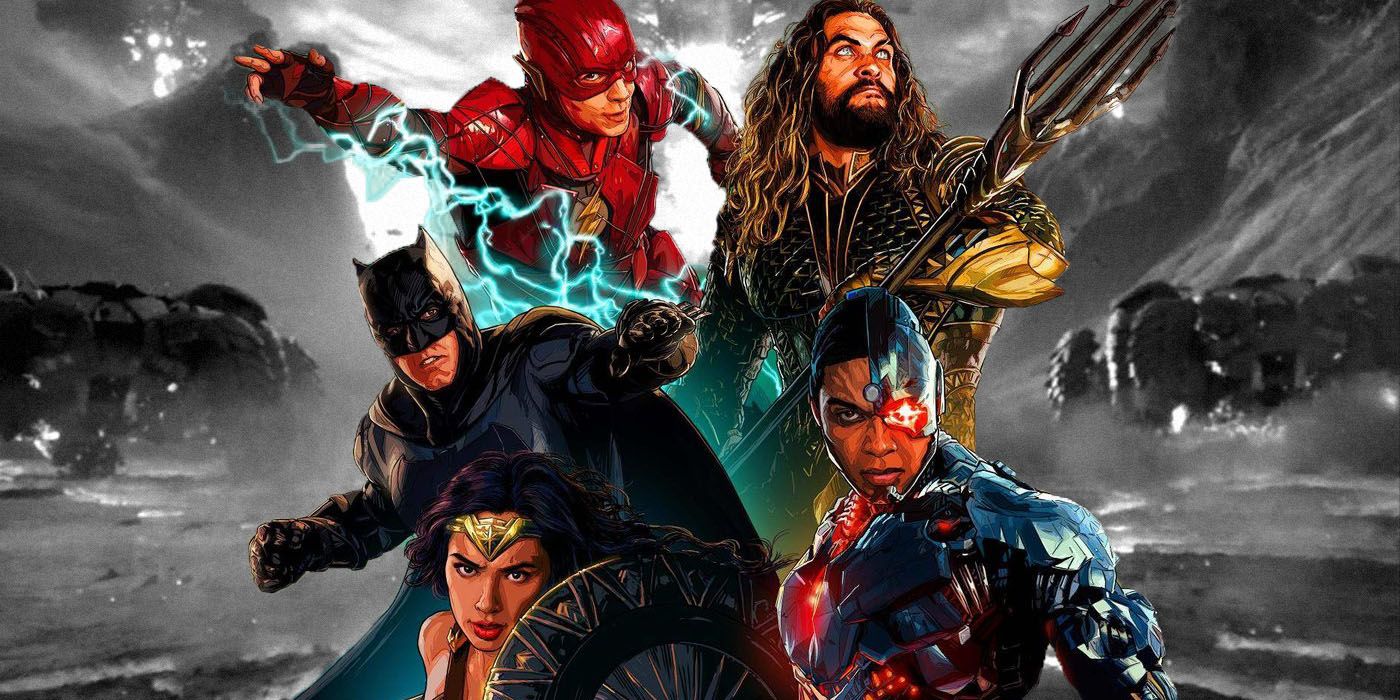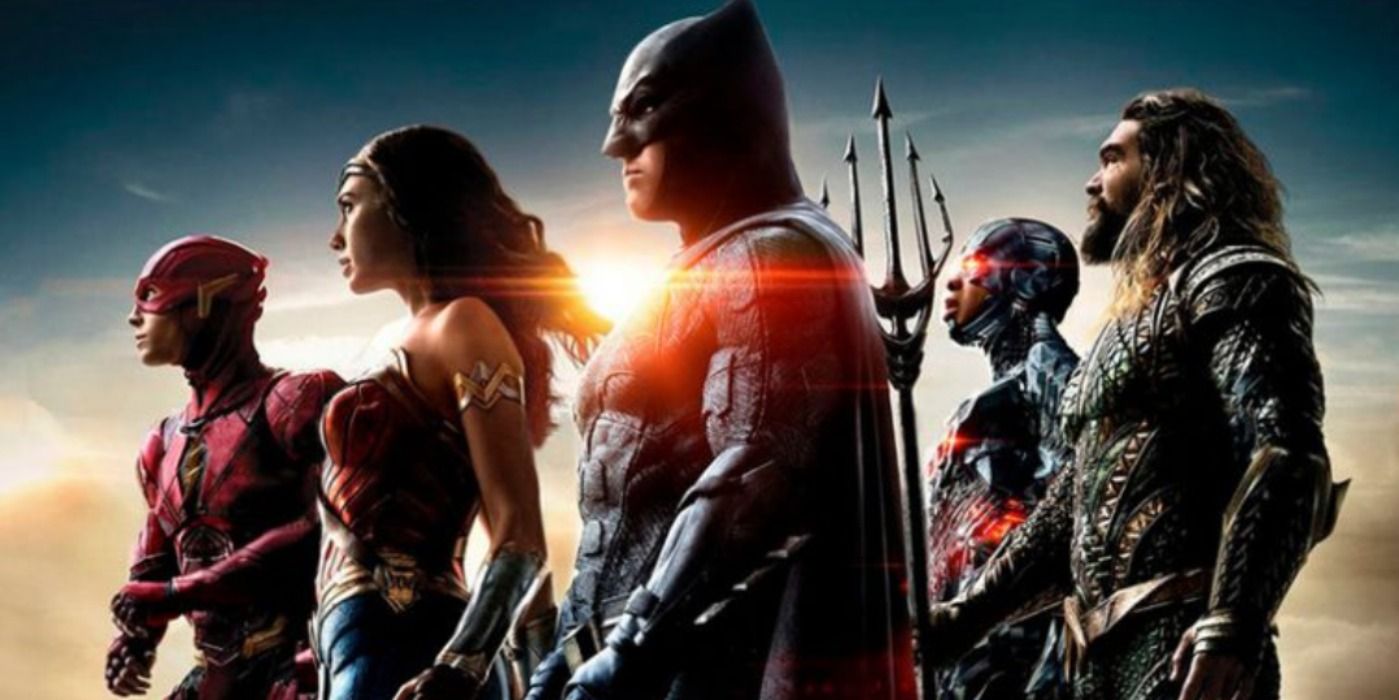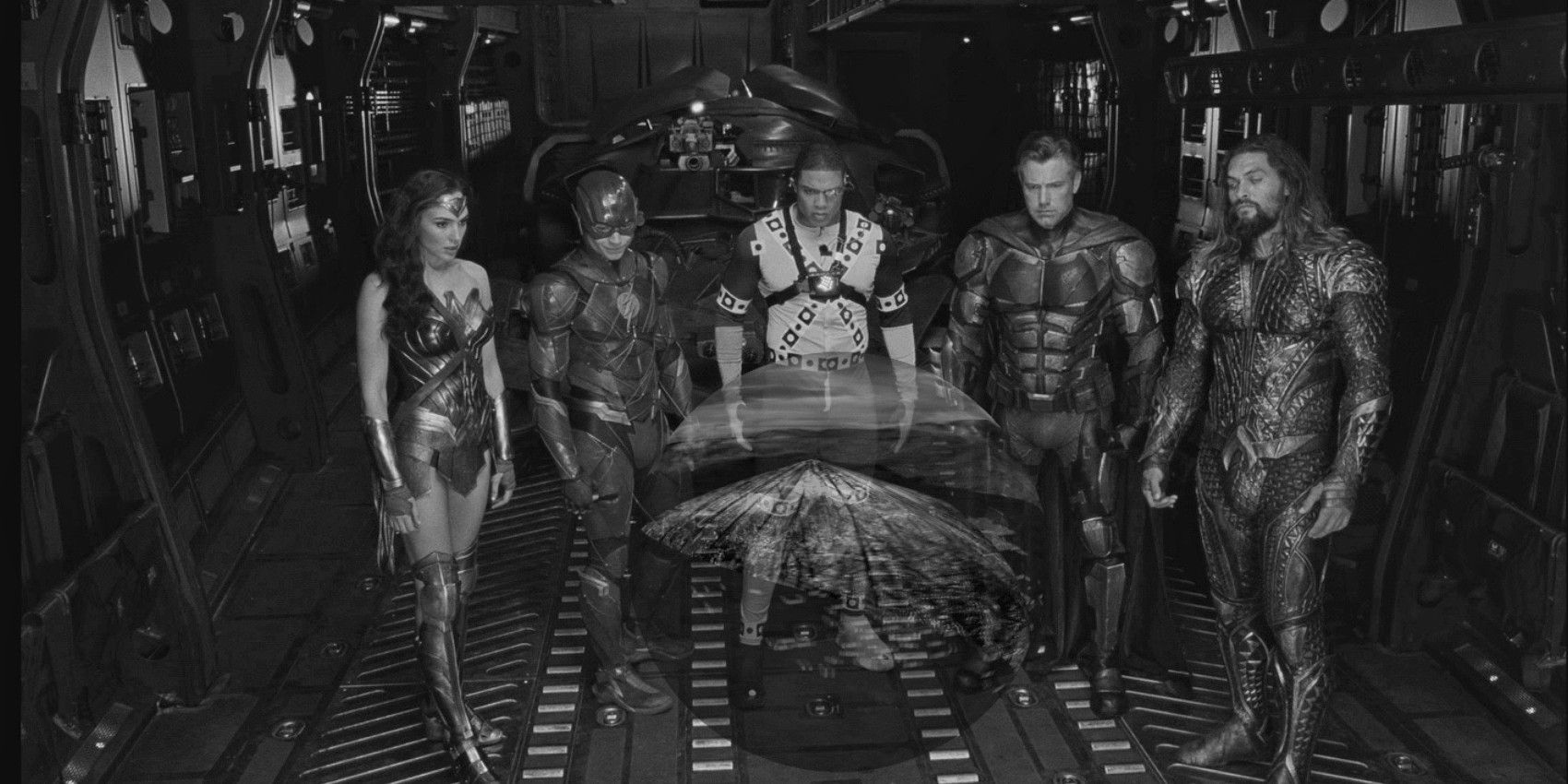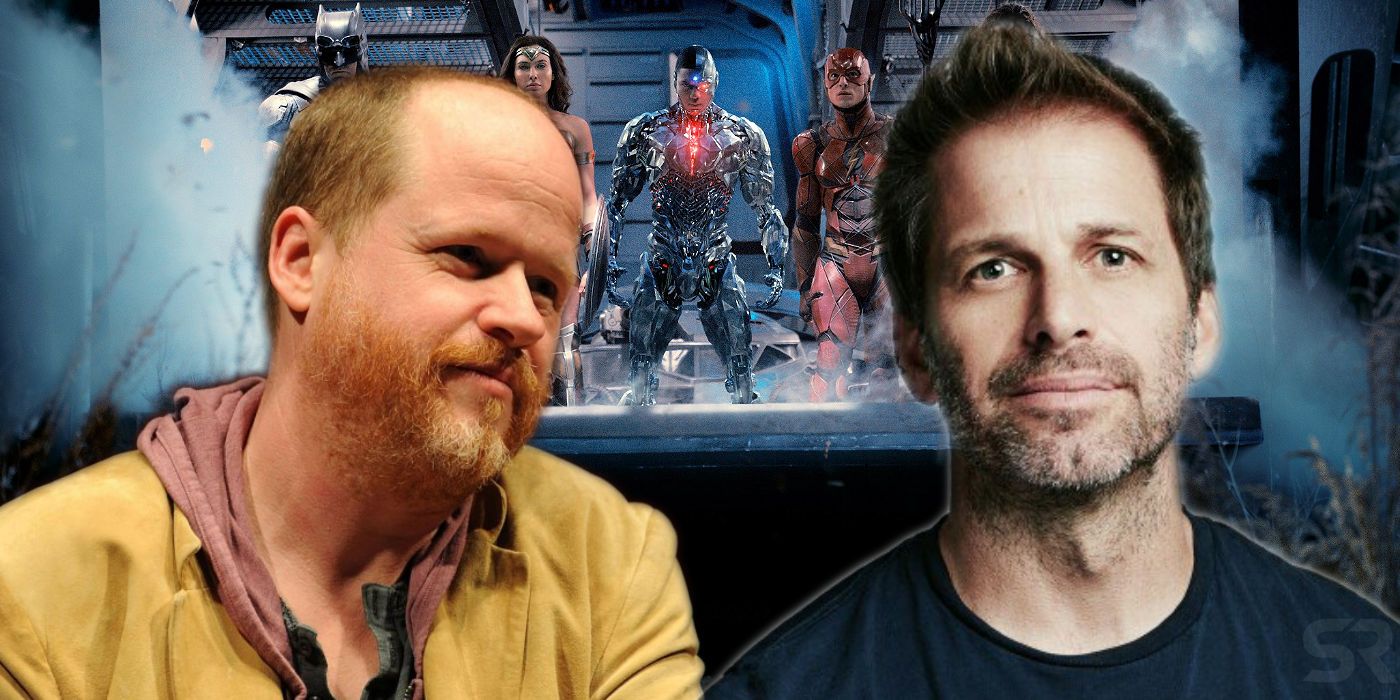
Justice League was once going to set the stage for the future of the DC Extended Universe, but given how different the upcoming Snyder Cut is set to be from the theatrical version, which Justice League will end up being canon in the DCEU?
After years of campaigning from dedicated fans, it was announced this week that original director Zack Snyder will be piecing together his own cut of 2017's Justice League, and that the new version will release on HBO Max in 2021. Snyder left the project after principal photography was complete due to a personal tragedy, and Justice League underwent extensive reshoots under The Avengers director Joss Whedon that left it feeling an awful lot like a DC knock-off of The Avengers.
Whedon shot nearly 80 pages of new script, and according to Snyder the theatrical version of Justice League only features about a quarter of the footage that he shot during his time as director. That leaves a lot on the cutting room floor for Snyder to work with, along with many story elements that were excised from Whedon's version in order to streamline the plot. Characters like Iris West (Kiersey Clemons), Vulko (Willem Dafoe), Mera (Amber Heard), and Martian Manhunter (Henry Lennix) were cut entirely, and Superman's resurrection and return was also handled differently. We'll have to wait for the release of Zack Snyder's Justuce League next year to see just how different the two versions are - but which one will be considered official canon within the DCEU?

The most obvious case for making Joss Whedon's version of Justice League official DCEU canon is that it was released theatrically, whereas Zack Snyder's Justice League will only be available on a particular streaming platform. This means that the 2017 Justice League will ultimately have been seen by a lot more people (despite the lackluster critical and audience response, it did gross $657 million worldwide), and it's not particularly reasonable to expect casual moviegoers to get a HBO Max subscription just to know what's going on in upcoming DCEU movies. This is especially the case since there are currently no plans to make HBO Max available outside of North America, and there's been no announcement of international release plans for the Justice League Snyder Cut, meaning that overseas fans may be left in the dark.
A lesser point is that Justice League has already technically been considered canon for three DCEU movies released since: Aquaman, Shazam!, and Birds of Prey. Actual references to Justice League in those movies have been limited to a Steppenwolf mention in Aquaman and a (headless) Superman cameo in Shazam!, so short of removing Steppenwolf completely or killing off Superman again at the end, there's not much the Snyder Cut can do to complicate those references.

There's a strong case to be made that, without Zack Snyder, the DCEU as fans know it would not exist. Snyder was the original architect of the cinematic universe, starting with Man of Steel in 2013 and continuing with Batman v Superman: Dawn of Justice in 2016, which in turn set up Justice League. Snyder set the tone for this big-screen version of the DC Comics universe, cast all the members of the Justice League and created the original vision for them, and set the stage for their heroics. Even more light-hearted movies like Shazam!, which couldn't be further from Batman v Superman or Man of Steel in tone, still exists in a world where Snyder's versions of Batman, Superman and Wonder Woman are celebrities. With all of that in mind, it only seems right that Snyder's cut of Justice League should be considered the definitive one.
The Snyder Cut of Justice League becoming DCEU canon also opens up more possibilities thanks to the inclusion of more characters. For example, Kiersey Clemons' Iris West could return in the upcoming Flash solo movie, and the Snyder Cut reportedly ends with a tease of the powerful villain Darkseid. If the latter becomes canon, it's the perfect set-up for Justice League 2 - should Warner Bros. ever decide to actually move forward with it.

While there are cases to be made for both versions of Justice League being canon, the rather blunt conclusion is that it really doesn't matter - because the DCEU as it existed in 2017 is already dead. Warner Bros. has since moved away from its ambitions of aping the Marvel Cinematic Universe and focused more on individual franchises and movies. For example, Todd Phillips' Joker doesn't fit into the DCEU at all; it features a different Joker than the one fans saw in Suicide Squad, and exists in a world that doesn't appear to have any superheroes. Despite not having any of the inter-movie connectivity that Warner Bros. believed would be a recipe for success, Joker's box office totals were second only to Aquaman in the current era of DC movies.
Following the struggles faced by Batman v Superman and Justice League, Warner Bros. took a looser approach even with movies that are theoretically a part of DCEU canon. As mentioned above, subsequent films only featured minor references to the events of Justice League and left behind the grim and serious tone of Snyder's movies in favor of more light-hearted traditional superhero antics. It's hard to reconcile Pitbull's "Africa"-sampling hip-hop song "Ocean To Ocean," the featured song of Aquaman, existing in the same universe as Batman v Superman. The studio is even making a movie called The Suicide Squad as effectively a reboot of that sub-franchise, despite it featuring some of the same actors in the same roles as David Ayer's Suicide Squad, so it seems like Warner Bros. is happy for DCEU canon to be a total mess.
The very fact that Zack Snyder's Justice League is now being put together is a symptom of Warner Bros. letting go of the idea of a concrete DCEU canon, and embracing a looser narrative with more possibilities. And based on the success that the DCEU has seen since the low point of Justice League 2017, letting go of canon is probably a good thing.
from ScreenRant - Feed https://ift.tt/2yrix3v


0 Comments